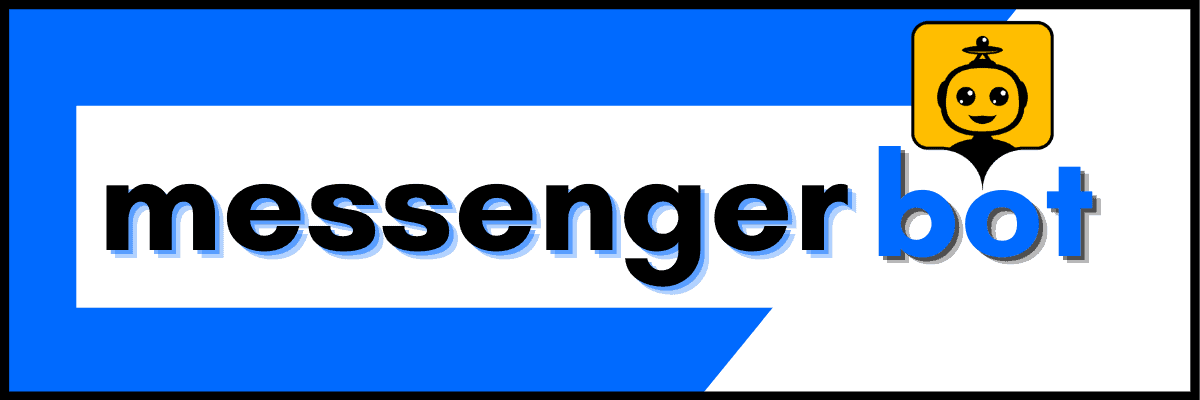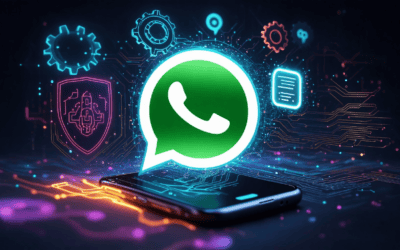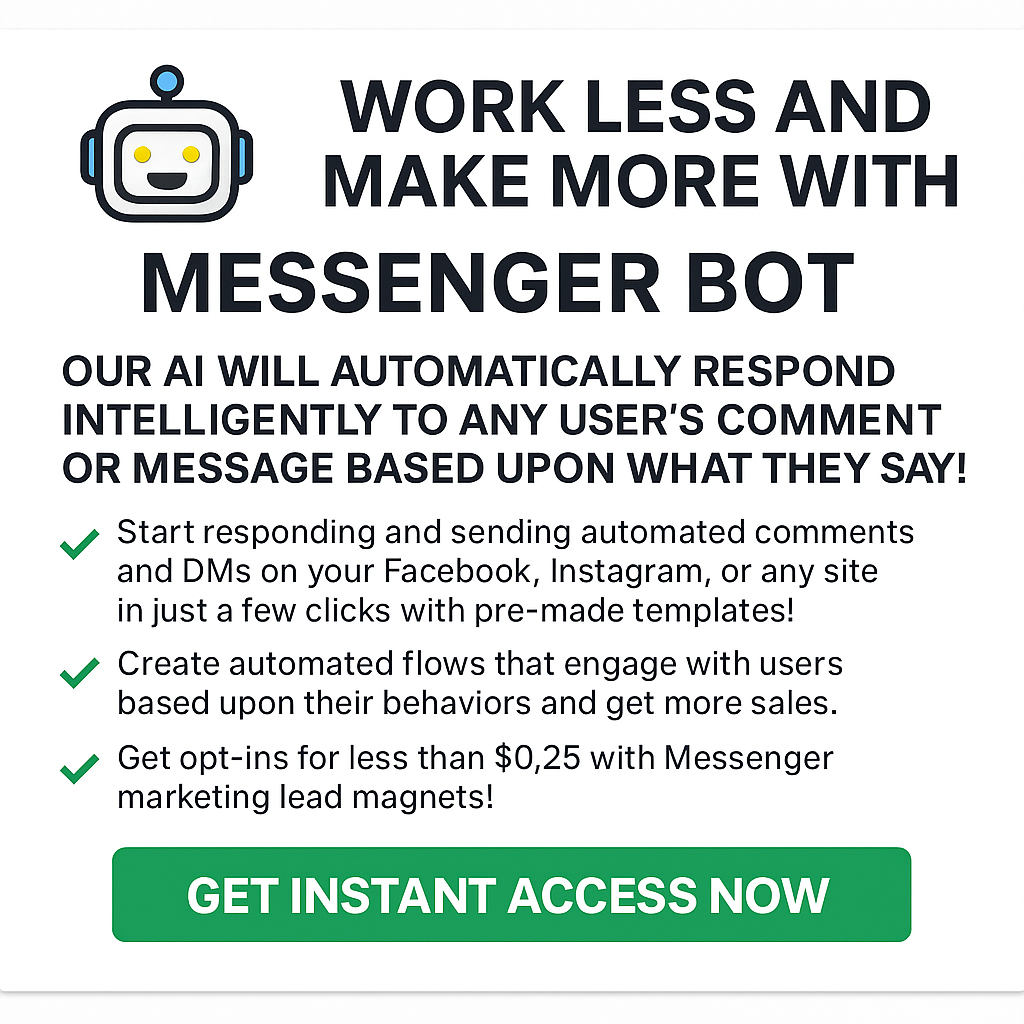In today’s fast-paced digital landscape, chat powered by Messenger has emerged as a transformative tool, revolutionizing the way we communicate. This article delves into the myriad benefits of Messenger apps, exploring how they enhance our chatting messages and overall messaging experiences. We will begin by clarifying the difference between a chat and a message on Messenger, setting the foundation for understanding the evolution of text and chat functionalities. Next, we will examine the integration of AI, specifically ChatGPT, into Messenger, ushering in a new era of messaging chat. Safety is paramount, so we will also discuss the security features of Messenger apps and best practices for safe messaging. Furthermore, we will explore the significance of private chats and the privacy measures in place. As we navigate through these topics, we will address common queries such as whether you can tell if someone is in the Messenger chat and why many users prefer Messenger over traditional messaging. Finally, we will look ahead to the future of communication with chat powered by Messenger, highlighting tools like the Facebook Chat Plugin that can enhance user engagement. Join us as we uncover the full potential of chat messaging and discover why Messenger is the top chat app for modern communication.
What is the difference between a chat and a message on Messenger?
Understanding the Basics of Messenger Apps
Messenger apps have transformed the way we communicate, offering various features that cater to different user needs. Within these platforms, understanding the distinction between chat and messaging is essential for optimizing interactions. Messenger apps, such as Facebook Messenger, WhatsApp, and others, provide users with tools for both real-time chat and asynchronous messaging, allowing for a versatile communication experience.
Understanding the Difference Between Chat and Messaging on Messenger
To grasp the nuances of communication on Messenger, it’s important to define both chat and messaging:
- Definition of Chat: Chat, often referred to as live chat, is a real-time communication feature that allows users to engage in instant conversations. This format is designed for immediate responses, making it ideal for urgent inquiries or situations requiring quick resolutions. According to a study by the International Journal of Human-Computer Interaction, real-time chat significantly enhances user satisfaction due to its immediacy.
- Definition of Messaging: Messaging, on the other hand, refers to asynchronous communication. Users can send and receive messages at their convenience, allowing for more thoughtful responses. This method is particularly useful for non-urgent matters, where immediate interaction is not necessary. Research from the Journal of Communication suggests that asynchronous messaging can lead to more reflective and detailed exchanges.
Here are the key differences between chat and messaging:
- Response Time:
- Chat: Instantaneous, fostering quick dialogue.
- Messaging: Delayed, allowing users to respond when they are available.
- Use Cases:
- Chat: Best for customer support, urgent questions, and real-time collaboration.
- Messaging: Suitable for casual conversations, follow-ups, and less pressing topics.
- User Experience:
- Chat: Often includes features like typing indicators and read receipts, enhancing engagement.
- Messaging: Typically lacks real-time feedback, focusing instead on convenience and flexibility.
Understanding the distinction between chat and messaging on platforms like Messenger is crucial for optimizing communication strategies. While chat is geared towards immediacy and urgency, messaging offers flexibility and convenience, catering to different user needs.
The Evolution of Text and Chat in Messenger
The evolution of text and chat in Messenger apps reflects the changing landscape of digital communication. Initially, messaging was limited to simple text exchanges, but advancements in technology have introduced features such as voice messages, video calls, and multimedia sharing. These enhancements have made Messenger apps a top chat app for both personal and professional use.
As we continue to embrace these innovations, understanding how to use chat powered by Messenger can significantly improve user engagement and satisfaction. For businesses, leveraging chat messaging tools can streamline customer interactions and enhance overall communication strategies.

Can I use ChatGPT on Messenger?
Yes, you can use ChatGPT on Messenger through various integration methods. This integration opens up new avenues for enhancing user interactions and automating responses, making it a valuable tool for businesses leveraging messenger apps. Here’s how you can set it up effectively:
Integrating AI with Messenger: A New Era of Messaging
One of the most efficient ways to integrate ChatGPT with Messenger is by using Zapier. This no-code solution allows users to connect Facebook Messenger with ChatGPT seamlessly, enhancing customer interactions without requiring any coding skills.
- Setup Process:
- Sign up for a Zapier account.
- Create a new Zap and select Facebook Messenger as the trigger app.
- Choose ChatGPT as the action app to respond to messages.
- Follow the prompts to link your accounts and customize your automated responses.
- Benefits of Integration:
- 24/7 Availability: ChatGPT can handle inquiries at any time, providing instant responses to users.
- Enhanced User Engagement: By integrating ChatGPT, businesses can maintain a conversational flow, improving user satisfaction and retention.
- Alternative Methods:
- Custom Bots: Developers can create custom bots using the Messenger API and OpenAI’s API to leverage ChatGPT’s capabilities directly within Messenger.
- Third-Party Services: Other platforms, such as ManyChat or Chatfuel, also offer integration options with ChatGPT, allowing for more tailored experiences.
- Considerations:
- Privacy and Security: Ensure that any integration complies with Facebook’s data policies and user privacy standards.
- Testing: Before fully deploying the integration, conduct thorough testing to ensure that responses are accurate and relevant.
For more detailed guidance on setting up ChatGPT with Facebook Messenger, you can refer to the official documentation from Zapier and OpenAI.
How to Use Chat Powered by Messenger for Enhanced Conversations
Utilizing ChatGPT within Messenger not only streamlines communication but also enhances the overall user experience. By integrating AI into your messaging strategy, you can transform chat and messaging into a more interactive and engaging process. Here are some effective ways to leverage this technology:
- Automated Responses: Set up automated responses for frequently asked questions, allowing users to receive instant answers without waiting for human intervention.
- Personalized Interactions: Use data-driven insights to tailor conversations based on user preferences and past interactions, making each chat message feel more personal.
- Lead Generation: Implement strategies to capture leads directly through Messenger, utilizing ChatGPT to guide users through the process.
- Multilingual Support: Leverage ChatGPT’s capabilities to communicate in multiple languages, breaking down barriers and expanding your reach to a global audience.
By adopting these strategies, businesses can significantly enhance their messenger online presence and improve customer satisfaction through effective chat messaging.
Is Messenger Chat Safe?
When it comes to using messenger apps like Messenger, safety and privacy are paramount. Understanding the security features and best practices can significantly enhance your experience while ensuring your conversations remain confidential. Here’s a closer look at the security features of Messenger and how you can protect yourself while engaging in chat and messaging.
Security Features of Messenger Apps
Messenger incorporates several robust security features designed to protect user data and ensure safe communication. One of the standout features is end-to-end encryption, which is applied to personal messages and calls by default. This means that only you and the recipient can access the content of your conversations, effectively preventing third parties, including Meta, from intercepting or reading your messages. According to a report by the Electronic Frontier Foundation (EFF), end-to-end encryption is crucial for maintaining privacy in digital communications.
Additionally, Messenger offers a feature called Secret Conversations, which utilizes end-to-end encryption and allows users to set expiration times for messages. This enhances privacy by ensuring that messages disappear after a specified duration, making it harder for unauthorized access. For further protection, enabling two-factor authentication (2FA) adds an extra layer of security by requiring a verification code sent to your phone in addition to your password, significantly reducing the risk of unauthorized access.
While Messenger encrypts chats, it is essential to be aware that Meta collects data on user interactions. Users should regularly review their privacy settings and understand what information is being shared. The company’s transparency report provides insights into data practices and user privacy. Keeping the Messenger app updated is also critical, as regular updates help protect against vulnerabilities that could be exploited by malicious actors.
Best Practices for Safe Messaging and Chatting
To ensure a safe messaging experience, consider implementing the following best practices:
- Be Cautious with Links and Attachments: Always exercise caution when receiving links or attachments from unknown sources. Phishing attempts can compromise your account security, so verify the sender’s identity before engaging with any content.
- Regularly Update Your App: Keeping the Messenger app updated ensures you benefit from the latest security features and patches, protecting you from potential vulnerabilities.
- Utilize Secret Conversations: For sensitive discussions, use the Secret Conversations feature to ensure your messages are encrypted and set to expire after a certain time.
- Enable Two-Factor Authentication: Activate 2FA to add an extra layer of security to your account, making it more challenging for unauthorized users to gain access.
By following these practices, you can enhance your safety while using Messenger, ensuring that your chat messages remain private and secure.
What is Messenger private chat?
Messenger private chat, also known as Facebook’s Secret Conversations, is a feature that allows users to engage in secure, encrypted messaging. This functionality ensures that conversations between two individuals remain private and inaccessible to anyone else, including Facebook itself. With the rise of digital communication, understanding the nuances of private chat features in messenger apps is essential for maintaining privacy in our conversations.
Exploring Private Chat Features in Messenger
Messenger private chat offers several key features designed to enhance user privacy and security:
- End-to-End Encryption: Messages are encrypted from the sender to the recipient, meaning that only the participants in the conversation can read the messages. This encryption protects against unauthorized access and eavesdropping.
- Self-Destructing Messages: Users can set a timer for messages to disappear after a certain period, enhancing privacy further by ensuring that sensitive information does not remain accessible indefinitely.
- Device-Specific: Secret Conversations are tied to the specific device used to initiate them, which adds an additional layer of security. Users must start a new Secret Conversation on each device they wish to use.
- Rich Media Support: Users can send photos, videos, and other media within Secret Conversations, all while maintaining the same level of encryption and privacy.
- User Control: Participants have control over their conversations, including the ability to delete messages and manage the visibility of their chat history.
For more information on the security features of Messenger private chat, refer to Facebook’s official documentation on Secret Conversations and the Electronic Frontier Foundation.
The Importance of Privacy in Chat Messaging
In today’s digital landscape, the importance of privacy in chat messaging cannot be overstated. As users increasingly rely on messenger apps for personal and professional communication, ensuring that conversations remain confidential is paramount. Messenger private chat not only provides a secure platform for messaging but also fosters trust between users. By utilizing features such as end-to-end encryption and self-destructing messages, individuals can communicate freely without the fear of their conversations being intercepted or misused.
For those interested in enhancing their messaging experience, exploring various chat apps messenger can provide additional functionalities that complement private chat features, ensuring a comprehensive communication strategy.

Can you tell if someone is in the Messenger chat?
Understanding whether someone is active in a Messenger chat can enhance your communication experience. Messenger apps, including Facebook Messenger, offer features that indicate online status, allowing users to gauge the availability of their contacts. This functionality is particularly useful for those who rely on chat and messaging for both personal and professional interactions.
Understanding Online Status in Messenger Apps
To determine if someone is active in a Facebook Messenger chat, follow these steps:
- Enable Active Status: Ensure that the “Show When You’re Active Together” feature is enabled in your Active Status settings. This setting allows you to see when friends are active in the same chat. Note that this feature is primarily available on mobile devices.
- Look for the Green Dot: When a user is active, a green dot will appear next to their profile picture in the chat. This indicates that they are currently online and available to chat.
- Privacy Settings Impact: Be aware that if a user has adjusted their privacy settings to disable activity status, the green dot will not be visible. In such cases, you will not be able to tell if they are active, regardless of your settings.
- Recent Activity Indicators: In addition to the green dot, you may also see timestamps indicating when the user was last active. This can provide insight into their recent activity, even if they are not currently online.
For more detailed information on managing your privacy settings and understanding Messenger features, refer to the official Facebook Help Center.
How Messenger Notifies Users of Active Chats
Messenger apps utilize various notifications to keep users informed about active chats. These notifications can include:
- Push Notifications: Users receive alerts on their devices when they receive new messages, ensuring they stay updated on ongoing conversations.
- Chat Bubbles: Some messenger apps feature chat bubbles that pop up on the screen, allowing users to quickly respond to messages without leaving their current activity.
- Sound Alerts: Users can enable sound notifications for incoming messages, making it easier to know when someone is trying to reach them.
By leveraging these features, users can enhance their messaging experience and ensure they never miss an important conversation. For those looking to optimize their communication strategies, exploring AI-driven solutions can further streamline interactions.
Why do people use Messenger instead of messages?
People use Messenger instead of traditional text messaging for several compelling reasons:
- Cost-Effectiveness: Messenger allows users to send messages and make calls over Wi-Fi or mobile data without incurring SMS fees, making it a cost-effective option for international communication (Statista, 2023).
- Rich Media Sharing: Unlike standard text messages, Messenger supports the sharing of photos, videos, voice messages, and documents, enhancing the overall communication experience (Facebook, 2023).
- Group Chats: Messenger facilitates group conversations, allowing multiple users to communicate simultaneously, which is particularly useful for coordinating events or discussions (TechCrunch, 2023).
- Integration with Facebook: Messenger is seamlessly integrated with Facebook, enabling users to connect with friends and family easily, view their online status, and react to messages in real-time (Pew Research Center, 2023).
- Enhanced Features: Messenger offers various features such as stickers, GIFs, and chatbots, which make conversations more engaging and interactive (Forbes, 2023).
- Cross-Platform Availability: Messenger is available on multiple platforms, including iOS, Android, and desktop, allowing users to stay connected regardless of their device (CNET, 2023).
- Privacy and Security: Messenger provides options for encrypted conversations through its Secret Conversations feature, giving users more control over their privacy (Facebook, 2023).
In summary, the combination of cost savings, rich media capabilities, group chat functionality, and enhanced features makes Messenger a preferred choice over traditional text messaging for many users.
The Advantages of Messenger Apps Over Traditional Messaging
Messenger apps, particularly Messenger, offer several advantages over traditional messaging systems. The ability to integrate various functionalities into a single platform is a game changer. For instance, Messenger allows users to engage in chat messaging that includes not just text but also multimedia elements, making conversations richer and more dynamic.
Moreover, the integration of chatbots within Messenger enhances user experience by providing instant responses and support, which is not typically available in standard SMS. This capability is particularly beneficial for businesses looking to improve customer engagement and streamline communication processes. For more insights on how chatbots can elevate customer support, check out this article.
Comparing Messenger Online with Standard Text Messaging
When comparing Messenger online with standard text messaging, several key differences emerge. First, Messenger provides a platform for message chatting that is not limited to text. Users can send images, videos, and even conduct voice calls, which significantly enhances the communication experience.
Additionally, Messenger’s ability to support group chats allows for more collaborative discussions, making it ideal for both personal and professional use. The platform’s integration with social media also means that users can easily connect with friends and family, view their online status, and engage in real-time conversations. This level of interactivity is often lacking in traditional SMS, which is limited to one-on-one text exchanges.
Chat Powered by Messenger: The Future of Communication
As we delve into the future of communication, it’s essential to understand how chat powered by Messenger is transforming the way we interact. This innovative approach combines the convenience of messenger apps with advanced AI capabilities, enabling seamless conversations that enhance user engagement and satisfaction. The integration of chat functionalities into various platforms is not just a trend; it’s a fundamental shift in how businesses connect with their customers.
Leveraging the Facebook Chat Plugin for Enhanced User Engagement
The Facebook Chat Plugin is a powerful tool that allows businesses to integrate Messenger directly into their websites. This feature enables real-time communication with visitors, providing immediate responses to inquiries and facilitating chat and messaging interactions. By utilizing this plugin, companies can enhance their customer support, making it easier for users to get the information they need without navigating away from the site.
Moreover, the plugin supports automated responses, which can significantly reduce response times and improve overall user experience. This feature is particularly beneficial for businesses looking to streamline their operations and provide efficient service. As more companies adopt this technology, the expectation for instant communication will continue to rise, making it crucial for brands to stay ahead of the curve.
Implementing the Facebook Chat Plugin on Your Website and WordPress
Integrating the Facebook Chat Plugin into your website or WordPress platform is a straightforward process. First, you need to create a Facebook Page for your business, if you haven’t already. Once your page is set up, you can access the Messenger Bot to generate the necessary code snippet for your site.
After obtaining the code, simply paste it into the HTML of your website or use a plugin for WordPress that allows you to add custom scripts. This integration not only enhances messaging chat capabilities but also allows for the collection of valuable data on user interactions, helping businesses refine their strategies over time.
In conclusion, the future of communication is undoubtedly tied to chat powered by Messenger. By leveraging tools like the Facebook Chat Plugin, businesses can create more engaging and responsive environments for their customers, ultimately leading to improved satisfaction and loyalty.





